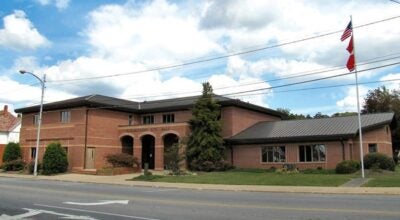Cold weather brings safety hazards
Published 9:22 am Wednesday, October 28, 2015
The onset of cold weather triggers rising heating bills and an increased number of fire hazards.
“People turn the heat on automatically when it gets cold without checking anything,” said Elizabethton Fireman Andy Hardin. “Usually fires this time of year can be attributed to some type of heating, whether it’s a fireplace or an electric or gas unit.”
He encourages people to check the area around their heaters, fireplaces, baseboard and wall units where they may have been storing items through the warmer months, as well as cleaning out chimneys.
“Heaters with nothing around them are usually pretty safe, but older ones tend to be more unpredictable,” he said.
David Proffitt, owner of Air Rite in Elizabethton, said it is important to have heaters inspected annually, whether people have central heat, gas furnace, gas wall heater, electric wall or baseboard heaters or portable heaters.
These inspections check for functionality, cleanliness and efficiency.
“There are more electronic controls in modern heat systems which make them more energy-efficient, but are typically more susceptible to dirt,” said Proffitt. “To ensure that everything is running properly, we check cleanliness, take readings on all motors, check duct work, and then, especially with gas furnaces, we check gas pressure and make sure the system is balanced properly to make sure it is energy-efficient.”
He said that homeowners can conduct self-checks and perform routine maintenance like changing filters every 30 days and inspecting cords, outlets and weather stripping.
Preventing loss of heat is an important step for conserving energy and saving money. This can be accomplished by installing new weather stripping, using draft blockers behind doors and upgrading home insulation.
“You’re always losing heat, so the more you can block cold air from entering, the longer it will stay, which means you save money,” said Proffitt.
Heating systems often fail on the coldest day of the year, so Proffitt said that instead of waiting till then, routine maintenance is the solution.
“It’s good to have a relationship with someone you trust that understands your system and keeps track of it, so they know what needs to be done,” he said. “We can catch problems in advance before they become an issue.”
Waiting till something breaks can mean having to replace it, which may be more expensive.
According to Proffitt, servicing older appliances can be difficult and more expensive than replacing them with something more reliable.
“It’s best to be prepared and to have annual inspections,” he said. “Even if your system is working, it may not be working most efficiently.”
He also suggested getting an affordable Tennessee Valley Authority Energy Right home audit, in which homeowners learn ways to help their homes retain heat and how to save money on heating. They can additionally get tips from the company that services their appliances or from a local heat and air company.
“By identifying energy inefficiencies, you can slowly make upgrades and improve comfort and efficiency,” said Proffitt.
Hardin advised turning the thermostat down when leaving the home, and added it is more cost-effective for a homeowner leaving temporarily (less than two hours) to keep the temperature steady. If the house is empty for eight hours or more, then it is preferable to set it to a cooler temperature. He said the best option is a thermostat that can gradually heat up to desired temperature by the time the resident arrives.
People without central heat who rely on electric heat should either turn the power to its lowest setting or turn it off and only heat specific rooms. With central heat, they should allow the system to heat the whole home.
One thing that people may be unaware of, Proffitt said, is that most space heaters are not designed to be plugged into an extension cord.
“They should be plugged directly into the wall, because the electrical amps will get the heater’s cord hot — it’s a fire hazard to use extension cord with a portable,” said Proffitt.
He said it can also be hazardous to leave a portable heater in a home with children or pets because they may burn themselves or tip the heater, though some are designed to power off when tipped.





